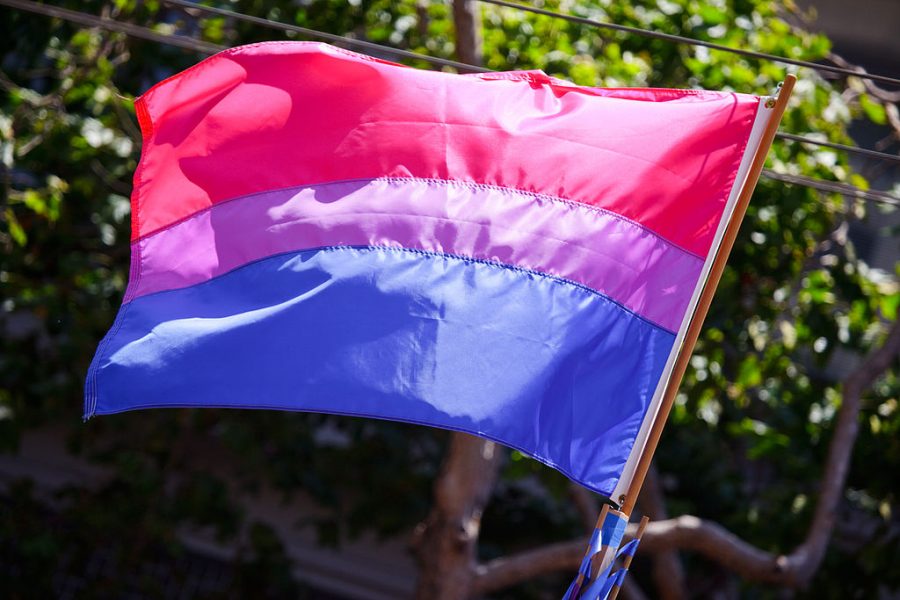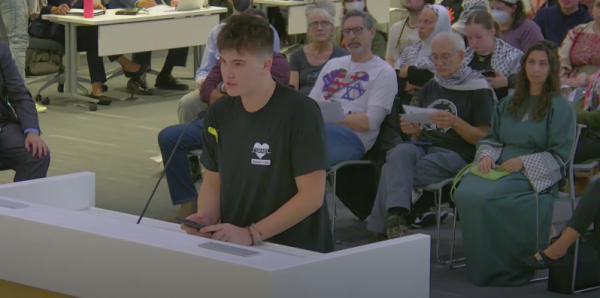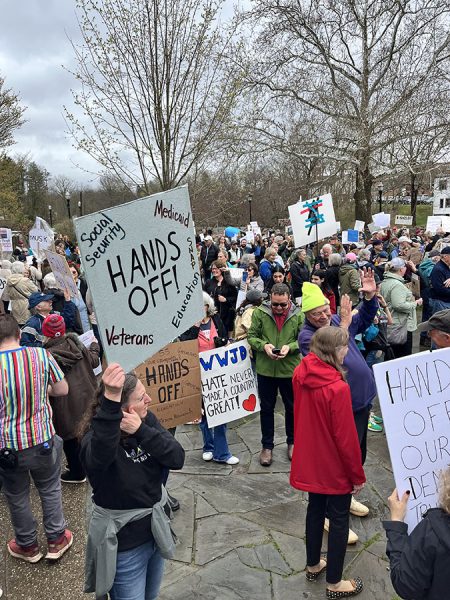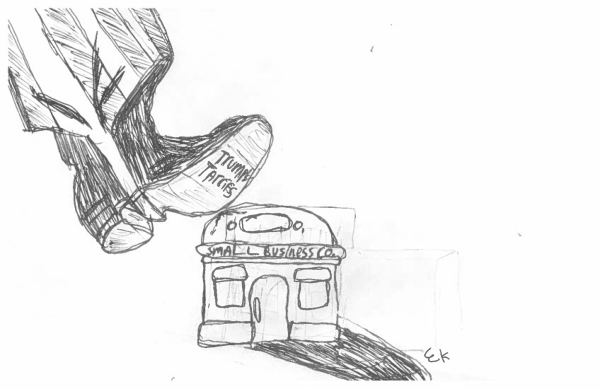Being Erased
Bisexuality is defined by Merriam Webster as of, relating to, or characterized by sexual or romantic attraction to members of both sexes. The standard acronym used to describe the queer community is “LGBTQ+,” standing for lesbian, gay, bisexual, transgender and queer, though it sometimes includes ‘I’ for intersex, ‘A’ for asexual, or ‘P’ for pansexual.
Despite its inclusion in the acronym, bisexuality is often excluded from the LGBTQ+ narrative. This exclusion from discussion of LGBTQ+ policies and how best to accommodate the LGBTQ+ community often occurs because it’s assumed that bisexual people will end up in opposite-sex relationships. But why?
According to a paper entitled “How Many People Are Lesbian, Gay, Bisexual, and Transgender,” published by the Williams Institute at UCLA’s School of Law, it is estimated that 3.5% of adults in the United States identify as lesbian, gay, or bisexual. This implies that, “there are are approximately 9 million LGBT Americans, a figure roughly equivalent to the population of New Jersey.” In most of the studies reviewed in this paper, bisexual people made up about 40% of that estimate.
If bisexuality makes up 40% of (likely modest) estimates, why do bisexual people continue to be erased from our society? Part of it is because of our binary way of talking about sexuality. By putting people in boxes of the extremes– completely hetero- or homosexual– we ignore the vast number of people who lie on a spectrum of attraction to both or either sex, or intersex/transexual people, who fall between those two extremes, in addition to asexual or aromantic people who do not even fall on that spectrum.
In fact, Kenji Yoshino, legal scholar and professor of Constitutional Law at NYU, argued in his paper entitled, “The Epistemic Contract of Bisexual Erasure,” that bisexuality is erased because of an epistemic contract between hetero- and homosexual people.
To clarify, an epistemic contract is defined as “a social norm that arises unconsciously.” He suggests that, unconsciously, the majority in our society, who identify with the extremes of the sexual attraction spectrum, have led to the erasure of bisexuality through the normalization of single-sex attraction.
When Yoshino looked at major sexuality studies to see what they said about the incidence of bisexuality and homosexuality in the population, he surprisingly found that not only do bisexual people often outnumber homosexual people, but no one had ever made that comparison.
He suggests the following:
“Bisexual invisibility is not a reflection of the fact that there are fewer bisexuals than there are homosexuals in the population, but is rather a product of social erasure.”
He also continued to say that,“the rising visibility of bisexuality might have transformative consequences for how we think about sexual orientation, politics and law.”
So how does it feel to be erased? Most of the time, I’m something called, “straight passing,” meaning that people assume that I’m straight based on their own assumptions or because I happen to be with a man at the time.
The discrimination bisexual people face comes from the straight community and the LGBTQ+ community. On one hand, many homosexual people say that being able to be “straight passing” is an unfair advantage for bisexual people, and that bisexual people don’t understand the struggles of being LGBTQ+. But on the other, many heterosexual people say that bisexual people are being greedy; that they’re more likely to cheat in relationships; that they’re just confused.
To me, the discrimination bisexual people face is displayed clearly in my day to day life. I’ve kept track of which friends have asked me, “if you had to pick one, which would you pick?”, or who dismissed my point of view as an LGBTQ+ person because,“Well, you lean more towards guys anyways.” I can remember clearly the boys whose reactions to my coming out were, “So will you have a threesome with me?” It’s the ache of reading that a 10-year-old boy was beat to death by his parents for coming out as bisexual.
Discrimination doesn’t always look the same, but it leaves me with the same fear. What someone might see as a harmless comment has a meaning to me that they’ll never know.
Remember, there is a vast spectrum of sexual attraction. The statistics support that someone around you is likely attracted to more than one gender. Opening up conversation around bisexuality and how that changes a person’s needs will make sure that our community is supporting ALL of our LGBTQ+ students.












